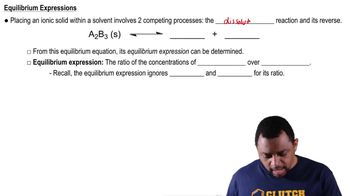Textbook Question
If 2-methyl-2-pentene were converted into 1-hexene, what kind of reaction would that be?
1130
views
 Verified step by step guidance
Verified step by step guidance Verified video answer for a similar problem:
Verified video answer for a similar problem:



 1:22m
1:22mMaster Hydrogenation Reactions Concept 1 with a bite sized video explanation from Jules
Start learning